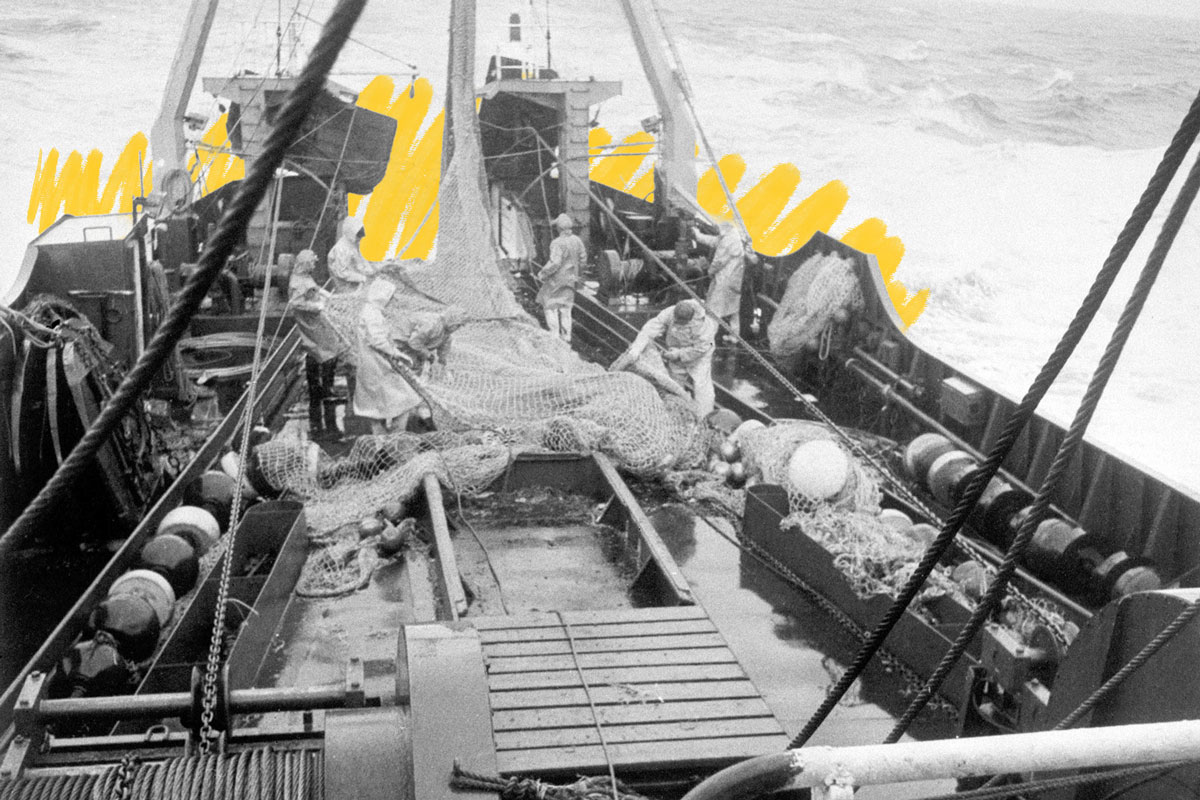Iceland and Britain engaged in a series of conflicts known as the Cod Wars.
Iceland currently ranks as the most peaceful country in the world, but its history isn’t entirely free of strife. Beginning in the 1950s, the Nordic country engaged in a series of conflicts with the U.K., known as the Cod Wars. The mostly bloodless back-and-forth involved fishing rights in the North Atlantic, as British ships had been drifting ever closer to Iceland for centuries in search of their oceanic quarry — an encroachment the smaller nation reluctantly tolerated for a time. That ended when Iceland expanded its exclusive economic zone (EEZ) in 1958, forcing the United Kingdom’s trawlers to stay out of Icelandic waters.
Rather than comply, Britain began having warships escort its trawlers. While most of the confrontations that followed amounted to little more than saber-rattling — vessels ramming one another, warning shots being fired into the crisp, cold air — what the U.K. called “the first casualty of the cod war” occurred in 1975 when a fisherman from Grimsby, England, was injured by a cable that an Icelandic trawler severed. It was actually the second casualty, however, as an Icelandic engineer was killed in 1973. It was also the last: The resulting diplomatic talks ended with the U.K. accepting Iceland’s 200-mile EEZ, bringing the decades-long conflict to an end.









